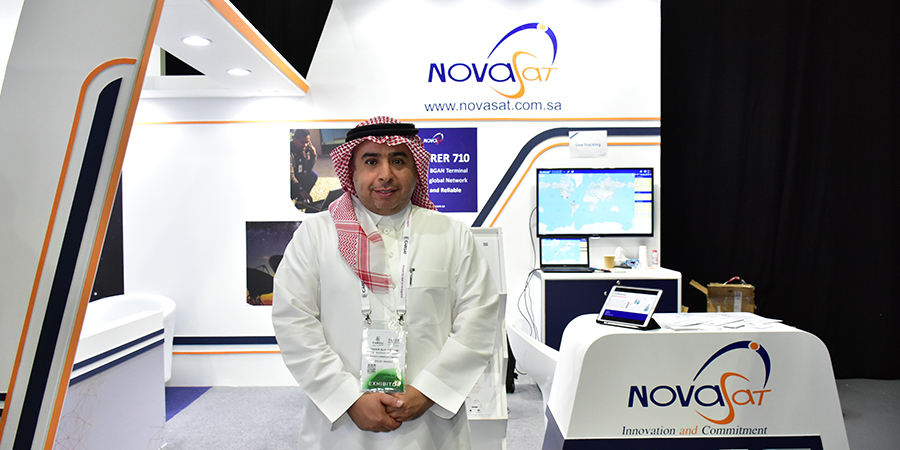At the sidelines of CABSAT 2021, Telecom Review secured an exclusive with Yasir Alshabrami, VP of commercial and operations, NOVAsat. He emphasized the company’s key products and solutions (SATCOM and VSAT) and pointed out the crucial role of ICT companies in paving the way for digital transformation.
Can you give a brief overview of NOVAsat and the key products and solutions being offered?
NOVAsat is a Saudi Arabia-based company established in 2005 to provide VSAT service for multiple customers. We have been handling all project delivery, technical support, and operation of the VSAT network for our clients. So, our core business has been and is still SATCOM and VSAT.
However, starting from 2017, we have introduced other business lines like CCTV, low current, infrastructure, and terrestrial wireless. Thus, we are providing a range of SATCOM products and services as well as other solutions for numerous business lines.
What are you showcasing in this year's CABSAT?
Our goal here is to showcase the range of our VSAT and SATCOM products. Mainly, we provide two types of services from our big VSAT teleport in Riyadh: internet service and IP VPN service. In addition, we do provide VSAT point-to-point connectivity. However, what is quite important to mention is that we are targeting specific VSAT market segments: maritime, oil and gas (O&G), military/government, and utilities.
For each of these market segments, there are specific requirements. For instance, NOVAsat has a branch in Dammam that takes care of all our maritime and O&G customers. We have a highly competent technical support team there.
We have also been managing Aramco’s VSAT network for 7 years, providing VSAT services for many other customers in the eastern region of Saudi Arabia, gaining tremendous experience in this market segment. Besides this, we have established partnerships with some renowned VSAT vendors like Intellian to address the needs of this market segment.
All in all, we are positioned as the first choice for maritime, O&G customers in Saudi Arabia. So, part of what we want to showcase in this CABSAT is not only what we provide in the SATCOM market but also the very long experience that we have gained over the years and our relationships with the major SATCOM players.
Focusing on your telecom and infrastructure solutions, what are the projects you have successfully worked on?
There is a very long list of projects. These include managing VSAT networks of the ministry of national guard, Aramco, stc, and Almazil as well as delivering VSAT network connectivity for the ministry of foreign affairs. We have also worked on other infrastructure projects with major clients like the ministry of interior and ministry of health.
What are your expansion plans within the region?
Indeed, we have a plan to expand and part of that plan is to expand our VSAT teleport in Riyadh which we are currently doing. We have just installed and commissioned a new 9m Ku-band antenna to cater to our new services. We have also hired a number of sales and marketing competent professionals who shall help the company expand and achieve its objectives.
On the other hand, we are currently studying the visibility to enter new market segments like cybersecurity and AI. We have very ambitious plans and we are working very hard to implement those plans.
In your perspective, why is ICT crucial to the ongoing digital transformation?
First of all, it is important to understand that digital transformation involves using digital technologies to remake a process to become more efficient or effective. According to this definition, digital technologies, or in other words ICT, is the means to achieve digital transformation and by the way, Saudi Arabia and many countries in this region have achieved enormous progress toward the digital economy.
Now, almost every governmental transaction is completed electronically in Saudi Arabia. Therefore, our role as ICT companies is crucial to paving the way for digital transformation.










